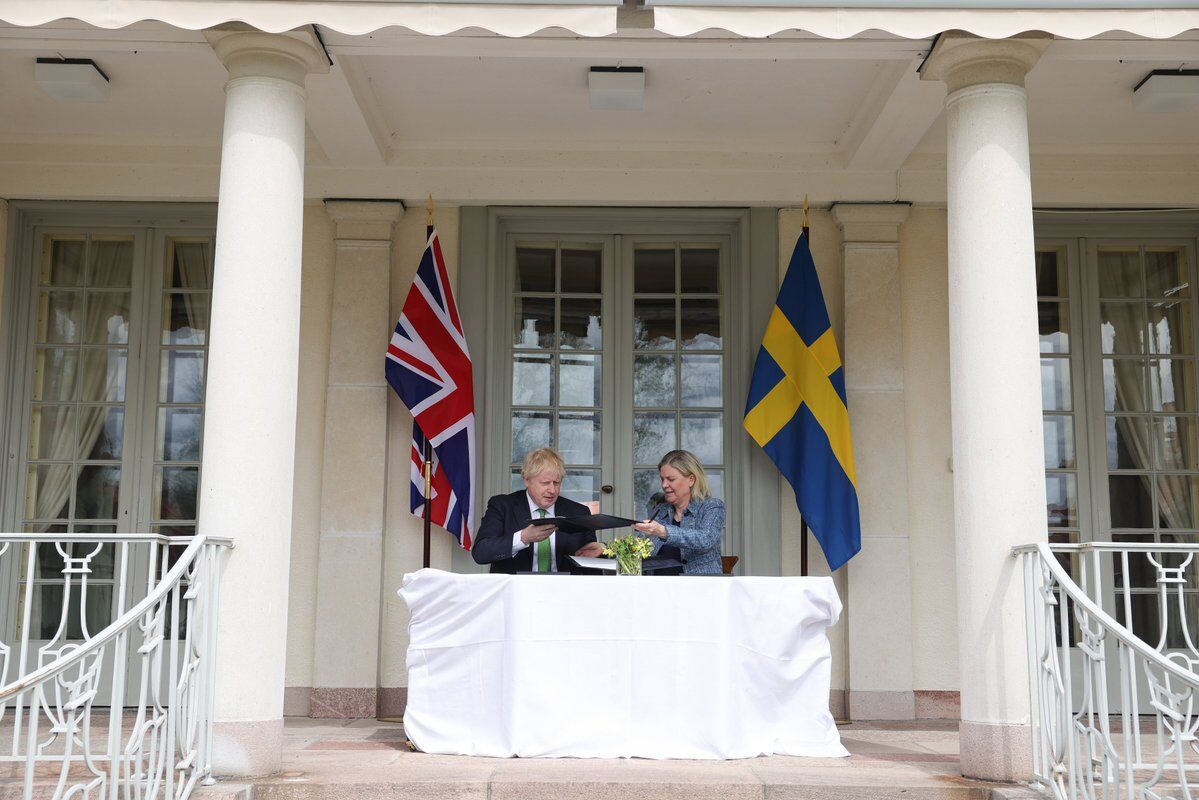Ebrahim Bagheri told the Strategic Council on Foreign Relations that if Finland and Sweden join NATO, the European security map will be rewritten, and this development will be one of the biggest geopolitical consequences of the Ukraine war, which will transform the European security system.
Referring to NATO’s decision to immediately consider Sweden and Finland membership in the military alliance, the researcher of the Strategic Research Institute pointed to Turkey’s opposition to this membership and said: “Turkey is opposed to accept Sweden and Finland to join NATO because it claims that Finland and Sweden are hosting members of the YPG and PKK and have complied with arms embargo imposed on Turkey.
He said that with Russia threatening to react strongly to the two countries’ membership in NATO, and given that NATO’s Article 5 (collective security) security guarantees will be activated after the end of the ratification process, several NATO members, led by the United States and Britain, have considered “Plan B” with the aim of providing security guarantees to Finland and Sweden until their membership is completed in NATO.
Bagheri continued by stating that this pact has brought a kind of collective security mentioned in Article 5 of NATO for these two countries, in the form of a bilateral pact with Britain. He said “considering reports that with the announcement of the membership of the two countries in NATO, Russia may wage a combined war, such as cyber-attacks on the two countries’ vital infrastructure, Russian warplane strikes, as well as information campaigns against Sweden and Finland. The two countries will be in the gray period, i.e. from the time of applying for NATO membership until the time of membership approval and will be protected by Britain.
Referring to the doctrine of deterrence with denial, which was considered by Britain in signing the security pact with Sweden and Finland, he said Britain believes that under this doctrine, both Ukraine, which is under Russian aggression, and countries that want to join NATO should be supported by providing weapons, equipment and intelligence sharing, and in a way, by providing security guarantees to these countries, a direct confrontation with Russia should be avoided.
Begheri said that the security pact addresses issues such as information sharing with the two countries and their cyber security, emphasizing that these two issues are separate from their membership in NATO and will always be ongoing.
This expert of European issues referred to the objective of Britain in signing the security pact with Sweden and Finland and said “Britain seeks to become one of the most active defenders of NATO’s northern flank and eastern front, which includes 10 countries around the Baltic and the North Sea. In fact, Britain, which was excluded from European foreign and security policy in the post-Brexit period, seeks to play an active role in European foreign and security policy, especially in independent European mechanisms, and does not want to be left out of European security and defense”.
Referring to issues that European countries are pursuing within the framework of the establishment of an independent European defense generally led by France, he said “the United States has always said that if such a mechanism were to take shape in Europe, Britain must be one of its firm foundations. Britain is therefore trying to take advantage of this situation to find a mechanism to bring the Atlanticist approach, which has diminished since Brexit, into the realm of European security mechanisms and independent defense”.
He emphasized that by strengthening the Eastern and Northern European flanks, Britain wants to return to its former role in European defense and security policy, and to preserve the Atlanticism that defines security and defense under the umbrella of the US and NATO, and to maintain this approach. This is the role that the United States wants to play in preventing the weakening of Atlanticism and to keep NATO as the sole security force in Europe.
He referred to the informal opposition of France with the security pact between Britain, Sweden and Finland and said “France sees Britain’s approach to Eastern and Northern Europe as bold which provokes Russia. France emphasizes the need to avoid provoking Russia and to be more careful about equipping and arming the countries of northern and eastern Europe.”
This expert of European issues said that Russia had warned that membership of these two countries would have serious consequences and Moscow would even consider stationing nuclear missiles in the Baltic region, adding that “however, Moscow is currently in a war of attrition in Ukraine, and the United States and Britain know that Russia will not be able to respond appropriately to NATO development and respond to its threats. Some analysts say Russia has been cautious in recent weeks about possible reactions to Sweden and Finland. Therefore, the scenario of Sweden and Finland membership in the short term is the most probable, assuming a compromise with Turkey and no other political considerations in NATO.”
Bagheri said that probable retaliatory steps taken by Putin may surprise NATO, adding that “in the context of such politico-security considerations, NATO may be cautious in the process of membership of the two countries and merely provide security guarantees and support to the two countries in the framework of bilateral and multilateral agreements.”










0 Comments